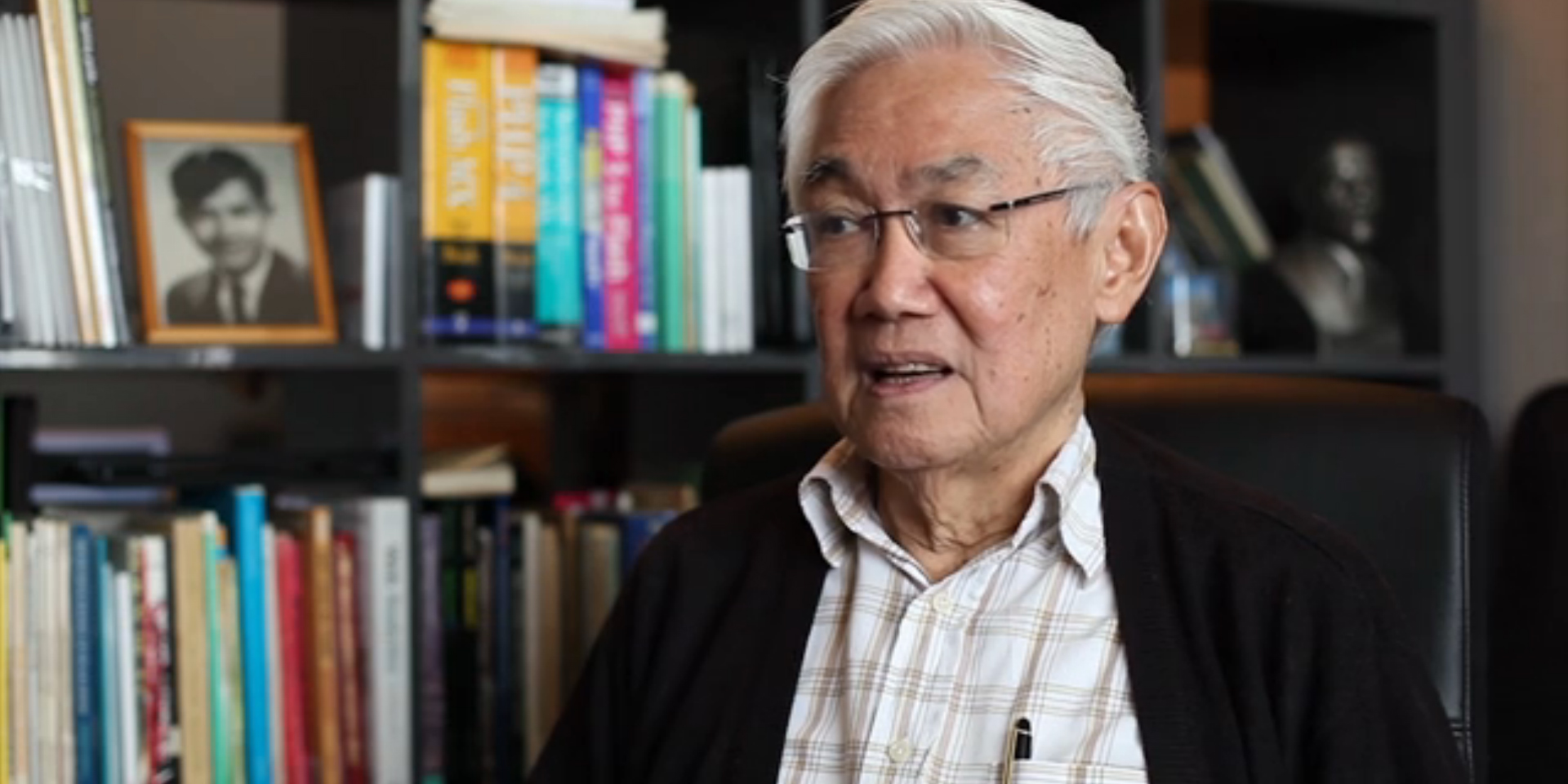The War Rages On
PW columnist and activist Teo S. Marasigan writes a quick but exhaustive rebuttal of the essay on the Philippine Left and revolutionary movement that came out in Jacobin Magazine’s website.


As a Filipino activist committed to radical social change, I like JacobinMag.com, the magazine that introduces itself as one “of culture and polemic.” Well, despite the lapse in judgment that spurred this missive (which we’ll get to shortly), I still do. I like the fact that its articles are short, direct-to-the-point, and relatively free of jargon. Its articles on the struggle of the workers and people of Greece against austerity, for example, are enlightening.
Jacobin’s publication of “The War Is Over” by one Alex de Jong, however, is a low point for the website. Despite its attempt to feign even-handedness, de Jong’s article clearly demonizes the underground Communist Party of the Philippines (CPP) and the open national-democratic umbrella organization Bagong Alyansang Makabayan (Bayan, which means “nation” in Filipino) before an international audience.
While admitting that the CPP and Bayan constitute “the strongest current on the Philippine Left,” the article downplays the vast difference in strength between these Reaffirmist groups on the one hand and so-called Rejectionist groups on the other. In fact, it tries to project parity of strength between the two camps. It also accuses the CPP and Bayan of “intellectual stagnancy” and “violence,” implying that other groups of the Philippine Left are intellectually vibrant and, well, peaceful.
De Jong defines the thrust of his article as that of tracking down the reasons why the CPP and Bayan remain the strongest formations on the Philippine Left. This way, he can zero in on the two groups’ negative points, broadly conceived, while ignoring the more glaring faults and weaknesses of other Left formations. He ends with the vague and unsubstantiated metaphoric conclusion that the Philippine Communist movement is being “worn down by the passage of history,” and thus, doomed.
What does de Jong fail to say in his article?
First, that despite the nuances and qualifications that he highlights in their history, the CPP and Bayan have consistently been the strongest Left formations in the Philippines since they were founded, with CPP leading in the armed struggle and Bayan in urban protests and parliamentary struggle. This, despite facing severe and non-stop political repression from the Philippine State, committing major ultra-left and rightist errors in the 1980s, being targeted by the ringleaders of the major errors of the 1980s with wrecking operations in the 1990s, and grappling with neoliberal policies and counter-insurgency campaigns that take them as targets. In the last two regimes alone, around a thousand of its legal activists have been killed or forcibly disappeared, and hundreds more unlawfully detained.

In the cities, the groups contributed significantly to urban protests that culminated in the ouster of Philippine presidents Ferdinand Marcos in 1986 and Joseph Estrada in 2001. They have been sworn enemies of successive regimes subservient to US imperialism and representing the local ruling classes. Whenever there are large protests in the Philippines, it’s the flags of Bayan and its member organizations that are flying high.
In the countryside, militarization and other forms of political repression intensify, but the New People’s Army, led by the CPP, continues to fight and gain strength in many areas of the country. It has been actively implementing land reform, building the organized strength of peasants, and waging armed struggle. It has been in the news, backing farmers in fighting landgrabbing by big landlords and international mining companies. Only this year, despite the grave threat of military retribution, the funeral march of fallen Communist commander Leoncio ‘Ka Parago’ Pitao saw thousands of supporters marching on the streets of Davao City, a grand display of love, mourning, and strength unprecedented in recent memory.
Collectively, the struggles and victories of the Filipino masses and people together with the CPP and Bayan are touchstones in Philippine history, concrete manifestations of a nation pushing forward.
The July 27 State of the Nation Address that de Jong talks about? He seems to have confined his view to Quezon City, where the Bayan protest numbered almost 30,000 while the other Left forces could muster no more than a few hundreds. De Jong fails to observe that Bayan simultaneously held big rallies in key towns and cities all over the Philippine archipelago. Meanwhile his description of the rally of a few hundreds as “broad” could only be laughable. In order to to come up with “presentable” photos of their Quezon City rally, its organizers took shots that were so tight, they might as well have taken selfies. And yet de Jong has the gall to try to paint the flawed picture where Reaffirmists “are equal in number to all the [Rejectionist] groups put together.”
Second, de Jong cites groups “from the Maoist [Marxist-Leninist Party of the Philippines] to the social-democratic Akbayan party and the Revolutionary Party of Mindanao” as if they are notable. These groups, however, are in reality scattered, distant from the Filipino masses and people – and, to be frank about it, negligible in Philippine politics. Apart from Akbayan which participates in elections, the names of these groups catapulted to newfound prominence by de Jong have never been heard of before in the Philippine scene; they are introduced to Filipino readers of his article for the first time.
The self-appointed spokespersons of these alleged groups have constantly presented them as emergent formations in the Philippine Left: fresh, exciting, on the way forward. But more than 20 years after they have broken ranks with the CPP and Bayan, what organizational or intellectual strength can these groups show? Not much. They have by and large remained leaders and writers without any significant mass membership. This, despite receiving ample financial and material support from various factions of the Philippine ruling classes, international funding agencies, and international solidarity networks.
Leaders and writers of groups like Akbayan have focused their intellectual energies on analyzing-attacking the CPP and Bayan, yet have shunned making honest-to-goodness Marxist assessments and summations of their own organizations’ histories. They have always tried to answer the question “Why do the CPP and Bayan remain strong?” but have refused to recognize, let alone answer, the question “Why do other Left formations remain very, very weak?” Their glaring lack of experience, skill and sharpness in assessing and summing-up their own history is clearly reflected in the haphazard manner with which they approach the histories of the CPP and Bayan.
They claim that their movements are intellectually vibrant, but that is never in the sense of enriching the unity of thought and action or the praxis of arousing, organizing and mobilizing the Filipino masses and the people for genuine social change. No wonder they proudly claim that they are “peaceful,” and that the imperialists and the Philippine ruling classes are only happy to agree.
Of course, mere numbers are not an absolute proof of a movement’s correctness. But the long and continuous existence of these organizations – more than 45 years for CPP and 35 for Bayan – and the victories that they have gained despite the various hurdles that they faced, show that they are the only Left formations which have successfully advanced – and continue to forward decisively – the Filipino masses’ and people’s struggle for genuine social change. On the other hand, the lackluster performance of Akbayan, and other Left formations in the Philippines, despite the various odds favoring them, shows that most of what they do is talk, criticize the CPP and Bayan, and ally with various factions of the Philippines’ ruling classes.
The experience of Akbayan, the most “successful” of the lot, is most instructive. Despite continuing to talk about its so-called “reform agenda,” the group has of late thoroughly exposed itself as a stooge and apologist of the neoliberal and fascist regime of Pres. Benigno Simeon Aquino III. Even Walden Bello, the group’s erstwhile representative in Congress and a left-lite anti-globalization activist, was forced to distance himself from the group for condoning the crimes of the corrupt and anti-people Aquino. Government reports released just this month show that the group’s top officials occupying positions in government have been given huge salaries and other perks.
Which brings us to the fundamental issue: What kind of “Left” politics are these groups trying to advance? Do they sharply analyze the socio-economic system prevailing in the Philippines and struggle for the correct radical solution? National-democratic activists have every reason to believe that the source of these groups’ weakness lies in their incorrect political line, whether consciously formulated or not. And that these groups’ incorrect political line stems ultimately from their incorrect ideological line.
I won’t go into detail addressing de Jong’s criticisms of the CPP and Bayan. The groups have their own websites (www.philippinerevolution.net and www.bayan.ph) and have done a better job of defending themselves against such weakly-founded accusations.

One thing is clear: de Jong’s article is aimed at the international progressive audience. It is not the first time the Rejectionist bloc has exploited a respectable international publication into being a platform for vilifying CPP and Bayan. And by publishing his article, Jacobin has fallen into the same mistake already committed by other publications: lending its hard-earned global prestige among progressives to commentators on the Philippines who are associated with groups that are hyperactive on the internet but dormant in the grassroots, or who mistake activity in social media as sufficient participation in social struggles, and who attack movements that are in reality doing a fine job at strengthening the struggles of the masses and people of the Philippines. And that, I believe, is a disservice to the latter.
Communists and national democrats are often maligned as orthodox and close-minded while New Left groups or new groups of the Left like to project themselves as open-minded and free from dogma. But any intelligent or discerning Left group should be able to recognize who’s truly exemplary in wielding Marxism and progressive theory in general to strengthen mass struggles and movements in various countries. Let there be no doubt about it: in the Philippines, it’s the Communists and national democrats.
“The War Is Over,” proclaims de Jong via Jacobin. “The CPP and Bayan are in decline,” he claims. That is definitely not true, but that is music to the ears of imperialists and the ruling classes of the Philippines.
13 August 2015



